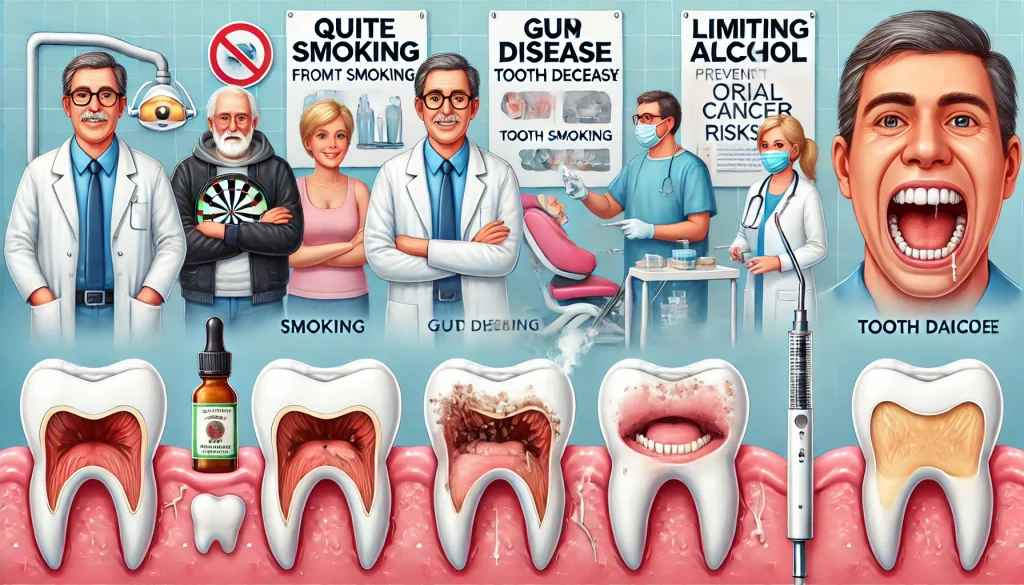
Proper care of teeth is necessary, but smoking and alcohol consumption have severe effects. This is a detailed article on how smoking and alcohol consumption influence dental health and how it can be minimized.
- Smoking Effect on Dental Health
Tooth Staining: Nicotine and tar in cigarette smoke lead to tooth staining, yellow or brown, thereby destroying your smile.
Gum Disease: It restricts blood flow to gums, which does not enable proper healing and allows infections.
Tooth Decay and Loss: Tobacco users are at increased risk of developing plaque and tartar, leading to cavities and tooth loss.
Bad Breath: Tobacco leaves a residual odor, which leads to extended bad breath.
Oral Cancer: Oral cancer is a frequent reason for smoking, leading to the lips, tongue, cheeks, and throat being affected.
- Effects of Alcohol on Dental Health
Dry Mouth: Alcohol reduces the amount of saliva, causing dry mouth and making tooth decay and gum disease probable.
Tooth Decay: Alcoholic beverages, especially sweet drinks, cause the formation of plaque and cavities.
Gum Disease: Too much alcohol may result in inflammation, gum receding, and periodontal disease.
Risk of Oral Cancer: Excessive drinking is linked to oral cancer, particularly combined with smoking.
Enamel Erosion: Acidic alcoholic drinks can wear down tooth enamel over time.
- Smoking and Alcohol Combined Effects
Both the drugs increase the risk of severe dental problems, such as advanced periodontal disease, extensive tooth loss, and increased oral cancer risk.
- Preventive Measures
Quit Smoking: Seek a professional, use nicotine replacement products, and go to support groups.
Reduce Alcohol Use: Reduce your consumption and consume water with alcohol to maintain hydration.
Practice Oral Hygiene: Brush twice a day, floss, and use fluoride toothpaste.
Regular Dental Check-Ups: Go to your dentist at least twice a year for cleanings and exams.
Use Mouthwash: Antibacterial mouthwash reduces bacteria and plaque.
Conclusion
Smoking and alcohol can have a detrimental impact on dental health, but preventive measures can reduce these impacts. Proactive oral care ensures a healthier smile and minimizes the risk of long-term complications.















